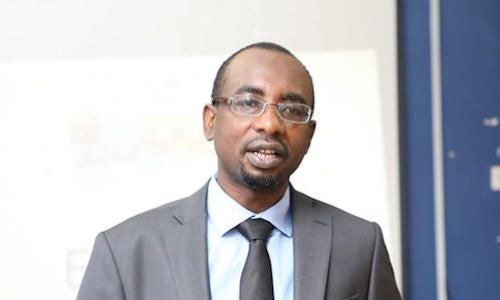BUSINESS
Digital Economy: FG calls for collaboration of stakeholders to reap benefits

The National Information Technology Development (NITDA) has called for the aggragation of resources together as government, people and institutions to reap the potential benefits of Digital Economy.
The Director-General of NITDA, Mr Kashifu Abdullahi, made the appeal on Wednesday in Ilorin, at a Digital Economy sensitisation lecture, titled ”Digital Economy: The triple helix model of government, people and institutions”.
The lecture was organised by the Centre for Digital Economy (CDE) of the Kwara State University (KWASU), Malete.
Abdullahi, who was represented by a Director in the agency, Mr Oladejo Olawumi, said the triple helix model is an interaction among these three for the purpose of fostering the economic transformation of various sectors of the economy.
He said the people and industries being the principal vehicle of commercialisation while the government retains its crucial regulatory role.
”Government’s role is therefore critical in the development of the Digital Economy because it must create an environment that is conducive for
innovation, investment and growth.
”NITDA has mapped out its 2021 to 2024 Strategic Roadmap and Action Plan (SRAP) with seven pillars.
”The strategy’s implementation will not only ensure the development, usage and sustainability of digital technologies, but will also deepen Nigeria’s economy digitally, diversify the economy, promote innovation and digital literacy, among others.
”On the other hand, tertiary institutions play a critical role in the development of the Digital Economy.
”They are the engines of innovation and provide the knowledge, skills and research necessary for the Digital Economy to grow.
”It is important that they align their activities and curriculum with current societal demands and provide opportunities for students to gain hands-on experience through internships at relevant organisations,” he said.
The NITDA boss added that the government, through organisations like NITDA, can support these institutions by providing infrastructure, grants and regulations that foster capacity development.
”At the same time, it is important to remember that the people are at the heart of the Digital Economy.
”They are the consumers, workers and entrepreneurs driving its growth and the ones who stand to benefit the most from the new opportunities and services it provides.
”It is crucial that the Digital Economy is inclusive and sustainable, benefiting everyone,” Abdullahi said.
He noted that though the Digital Economy presents a wealth of opportunities for growth and innovation, it is important that stakeholders work together as government, institutions and people to ensure that it is inclusive and sustainable for all.
The KWASU Acting Vice Chancellor, Prof. Shaykh Luqman Jimoh, said the CDE was established in February 2022 to be “the Centre for digital innovation thinking, reasoning, harnessing opportunities, resource mobilisation, leadership and value-reorientation for a digital-economy drive in Kwara and Nigeria at large”.
Jimoh said KWASU has been a leader in lifelong education at the tertiary level since its inception as the university provide abundant learning opportunities for the local communities and the region.
Hence, the CDE was established to create avenues for digital education for citizens to tap into the digital economy.
The centre is in collaboration with Ilorin Innovation Hub and is backed by NITDA for Digital Economy training.
The CDE Board Chairman, Prof. Kajogbola Alao, said the CDE was envisioned to take digital economy capacity development to the community and engage the positive digital energy of our youth at all levels.
He expressed optimism that in due course, KWASU would be one of the very best universities in Nigeria to award Bsc in Digital Economy.




 Davido's Net Worth & Lifestyle
Davido's Net Worth & Lifestyle 
